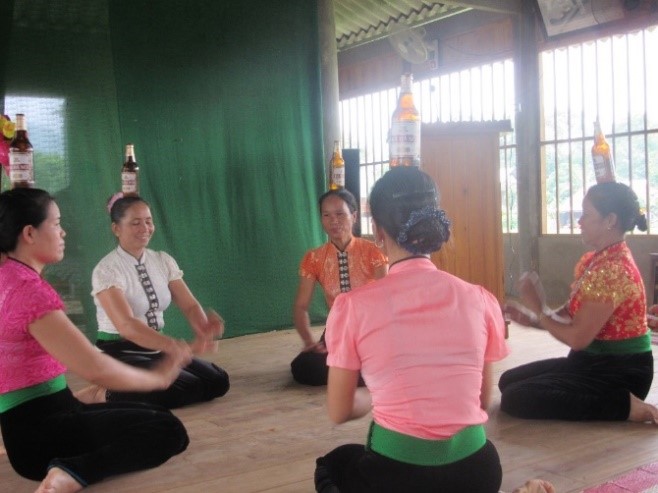Gender-disaggregated data
 |
First steps in the process involved the collection of gender-disaggregated data, particularly regarding farm/household decision-making. By understanding who is making decisions on behalf of the household/farm (men, women, or both) ICERD and partners can better determine who will benefit most from trainings and target trainings to include these specific populations. The role of gender in agriculture varies significantly country by country based on a number of cultural and practical factors and is also in the process of constant evolution. With this in mind, it is important to maintain consistent gender-related data and not to over-generalize or otherwise misinterpret this information. It may be deduced that if more women were empowered to attend trainings, they would also be more inclined to participate in important decision making processes such as what kind of pesticide to spray and how much. Also, even though they are often not spraying chemical pesticides themselves, they are often still directly or indirectly exposed to chemicals through the air or by the process of washing spray containers. Therefore, women should also be made aware of the dangers of chemical exposure and the specific impacts to women and children. |
FOCUS GROUPS
 |
Focus group discussions where organized with both men and women present on gender roles in agriculture. During these focus groups, participants discussed what needed to be improved upon regarding the role of men and women. |
WOMEN’S UNIONS
 |
ICERD, has maintained a close collaboration with communal Women’s Unions over the past several years, supporting female participation in ABD, PRR, SRI, and IPM trainings. In 2015, 58 % of the farmers who attended the integrated Farming training (rice–fish) and Bac Giang province were women and in Yen Bai province 96 % of farmers who attended the training on Conservation and Utilization of Indigenous Vegetables/ Market Access were women. Creation of a Woman’s Club: Participating women in FFSs organised themselves into a woman’s club. Initially it was about exchanging and sharing experiences on the conservation of aquatic animals and fish in rice fields as well as theatre and singing. Later on the activities were expanded to IPM, SRI, vegetable growing techniques, alternatives to chemical inputs, health and nutritional issues, input supply companies and dissemination of environmental friendly farming techniques. |


